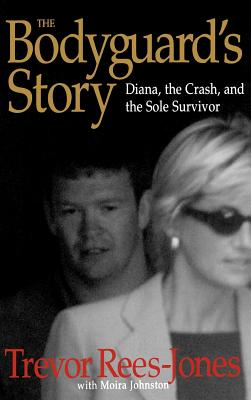
Rees-Jones, Trevor
product information
description
For Trevor Rees-Jones the answer is simple: he was in the same hospital as Diana, fighting for his own life a few rooms away. As bodyguard to her companion Dodi Fayed, he was with the couple when, hounded by paparazzi and with a driver who turned out to be drunk, their Mercedes crashed into the thirteenth pillar of the tunnel under the Place de l'Alma in Paris. Dodi and the driver, Henri Paul, died instantaneously, medics say; Diana was rushed to a nearby hospital where doctors worked feverishly to resuscitate her before giving up in the early hours of Sunday morning. Miraculously, Trevor survived. But his condition was critical -- internal chest injuries and a broken wrist were the least of it. His head had taken the brunt of the impact and suffered catastrophic damage; his face was crushed beyond recognition. In a stunning medical drama, however, a facial surgeon performed a miracle of reconstruction, and -- along with Trevor's own indomitable will and the support of his family and friends -- the bodyguard was able to leave hospital after just over a month. His goal then was straightforward: to return to a normal life as soon as possible, go back to work for his employer, Mohamed Al Fayed, and to the simple pleasures of rugby and his mates at home in Shropshire. But the crash that nearly killed him had killed Diana, Princess of Wales, one of the most famous women of the late twentieth century. A normal life was no longer an option. And as Mohamed Al Fayed's grief at the loss of his son quickly turned into a desperate hunt for reasons, for culprits and conspiracy, Trevor found his unswerving loyalty to the Boss at first questioned and then, ultimately, destroyed, as Fayed pointed the finger of blame at him. The Bodyguard's Story grippingly describes, for the first time, Trevor Rees-Jones's part in these astonishing events. From the prelude to Paris, when Trevor foun
member goods
No member items were found under this heading.
listens & views

NEW TRENDS: FASHION TV / ...
by NEW TRENDS: FASHION TV / VARIOUS (PORT)
COMPACT DISCout of stock
$11.99

VOL. 2-TANGOS ROMANTICOS / VARIOUS ...
by VOL. 2-TANGOS ROMANTICOS / VARIOUS (ARG)
COMPACT DISCout of stock
$14.99
Return Policy
All sales are final
Shipping
No special shipping considerations available.
Shipping fees determined at checkout.





